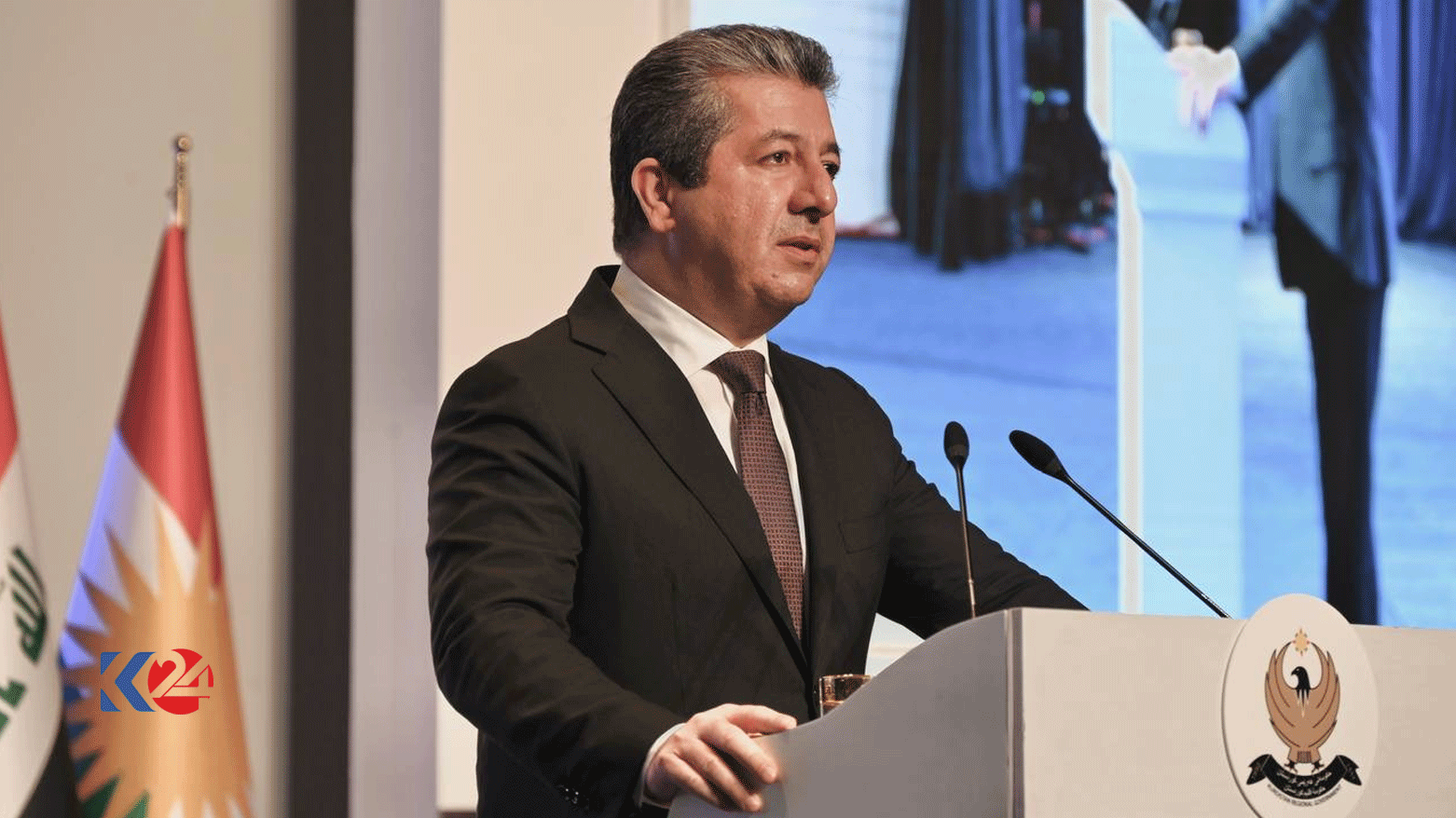PM Barzani calls for ‘joint international strategy’ with KRG to tackle narcotics
He highlighted the government’s “intensified” cooperation in recent years with international organizations, particularly with the United Nations Office on Drugs and Crime (UNODC) for the same purpose.

ERBIL (Kurdistan 24) – Kurdistan Region Prime Minister Masrour Barzani on Sunday called on the international community to formulate a joint strategy with his government to tackle the rising threats of narcotics in Iraq's Kurdish region.
Barzani’s remarks came at the Conference on Combating Drugs and Psychotropic Substances, organized by the Kurdistan Regional Government's (KRG) Office of the Coordinator for International Advocacy as part of implementing its 2021-2025 regional Human Rights Action Plan.
Expressing the government’s need for international logistical and consultation support in its efforts to combat the illicit drugs, Barzani called for collaboration between the international community and organizations such as the United Nations to tackle what he described as an “epidemic.”
“I propose to formulate a joint comprehensive strategy for collaboration and cooperation with the KRG,” to tackle the issue, which both the regional and federal governments are grappling with, Barzani said.

He highlighted the government’s “intensified” cooperation in recent years with international organizations, particularly with the United Nations Office on Drugs and Crime (UNODC), to tackle narcotics and human trafficking.
Drug abuse and trafficking puts entire communities at risk. They recognize no borders.
— Masrour Barzani (@masrourbarzani) October 15, 2023
Tackling both requires us to work together in Iraq and with our neighbors.
We are backing rehabilitation centers to treat victims and help their recovery. I hope our partners will join us. pic.twitter.com/DJqL3J9z8R
In the conference, attended by numerous foreign diplomats, community leaders, and top KRG and Iraqi officials, Barzani said the Kurdistan Region is witnessing an “increased” use of trade in narcotics and their consumption.
“The KRG is firmly eradicating and tackling this imminent threat and will make every effort to prevent the spread of it,” the premier said, highlighting the adoption of Combatting Narcotics and Psychotropic Substances Law No. 1 in 2020 as a legislative effort in this regard.
One of Kurdistan Region's most menacing challenges is narcotics, which is “one of the weapons that are being used to undermine the social harmony and deteriorate the health and capabilities of the youth,” Barzani said.

“The threats from narcotics are no less than of terrorism,” the premier said.
The top official, who previously served as the Chancellor for the Kurdistan Region’s Security Council, said the drug traffickers and mafia groups are trying to use the Kurdish region as a transit route for illicit business, hence contributing to an increase in the number of addicts.
The “security vacuum” – a term the Kurdistan Region officials regularly use to refer to the lack of security cooperation between the regional security forces and those from the federal government – was blamed by the premier as another factor for the increased trade in the narcotics, particularly in the border areas and disputed territories between Erbil and Baghdad.

“A number of armed groups in those territories are preventing the KRG security forces from arresting the drug traffickers. Some of these armed groups are part of the illicit drug trafficking,” Barzani said.
The wide-ranging issue requires a collective approach from all segments of society to “eradicate the source of this epidemic,” according to Barzani, adding a fund has been established to rehabilitate and treat the victims of narcotics.
The premier said the victims of narcotics and drug traffickers have to be differentiated; those who have become the victims should be assisted in rehabilitation centers while the traffickers have to face the “harshest punishment” by the security forces.
The Region’s security forces routinely confiscate and arrest drug trackers at border crossings and in the big cities in a bid to curb the perilous trafficking network.
In late August, over 100kg of narcotics were seized in Erbil, including Captagon pills, crystal methamphetamine, and heroin.
Kurdistan 24 previously reported that 80% of drug users in the Kurdistan Region are between 18 and 35 years old. 10% of drug users are women and 4% are under 18 years old.
Captagon pills, a brand name for an amphetamine-like stimulant, are one of the most widely trafficked drugs in Iraq. It is believed that most of the low-cost drugs are produced in war-torn Syria.
In April 2023, the KRG's Ministry of Finance and Economy established a Drug and Psychotropic Substances Fund to provide treatments for substance abusers and financial rewards to those who turn in illegal drugs to local authorities.
.jpg)